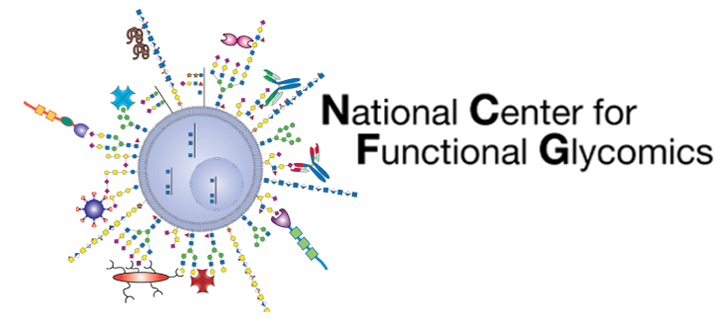Prasanphanich NS, Luyai A, Song X, Heimburg-Molinaro J, Mandalasi M, Mickum M, Smith D, Nyame K, Cummings R. Immunization with recombinantly expressed glycan antigens from Schistosoma mansoni induces glycan-specific antibodies against the parasite.. Glycobiology. 2014;24(7):619–37.
Abstract
Schistosomiasis caused by infection with parasitic helminths of Schistosoma spp. is a major global health problem due to inadequate treatment and lack of a vaccine. The immune response to schistosomes includes glycan antigens, which could be valuable diagnostic markers and vaccine targets. However, no precedent exists for how to design vaccines targeting eukaryotic glycoconjugates. The di- and tri-saccharide motifs LacdiNAc (GalNAcβ1,4GlcNAc; LDN) and fucosylated LacdiNAc (GalNAcβ1,4(Fucα1-3)GlcNAc; LDNF) are the basis for several important schistosome glycan antigens. They occur in monomeric form or as repeating units (poly-LDNF) and as part of a variety of different glycoconjugates. Because chemical synthesis and conjugation of such antigens is exceedingly difficult, we sought to develop a recombinant expression system for parasite glycans. We hypothesized that presentation of parasite glycans on the cell surface would induce glycan-specific antibodies. We generated Chinese hamster ovary (CHO) Lec8 cell lines expressing poly-LDN (L8-GT) and poly-LDNF (L8-GTFT) abundantly on their membrane glycoproteins. Sera from Schistosoma mansoni-infected mice were highly cross-reactive with the cells and with cell-surface N-glycans. Immunizing mice with L8-GT and L8-GTFT cells induced glycan-specific antibodies. The L8-GTFT cells induced a sustained booster response, with antibodies that bound to S. mansoni lysates and recapitulated the exquisite specificity of the anti-parasite response for particular presentations of LDNF antigen. In summary, this recombinant expression system promotes successful generation of antibodies to the glycans of S. mansoni, and it can be adapted to study the role of glycan antigens and anti-glycan immune responses in many other infections and pathologies.
Last updated on 03/06/2023
